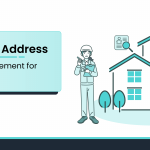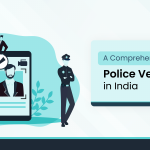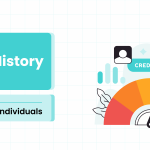Journey of Identity Verification
Trust does not come easy to us. Especially when we engage with strangers. Many modern businesses are being built in India and globally where consumers and organizations engage heavily with professionals from the unorganized sector, who are complete strangers, and that is where trust becomes even more difficult. Why is that? Perhaps because of a fear that there is no guarantee, or even visibility, to the real identity, past record, and accountability of an individual. And that is where the concept of long, tedious and costly “verification” and “background checks” comes into play. Let us look at the recent evolution of this.
Year 2000. This is how verification and hiring happened.
1. Bring your Government ID document. Show me the originals.
2. There is a problem with your address. The district is missing.
3. Your address says West Bengal. Where is your address proof for Delhi? I don’t have any, Sir. For an address proof in Delhi, they ask for another address document.
4. If you want a job, get your police verification done.
5. Woah – this is just an acknowledgement. It’s not a clearance certificate. But sir, I paid Rs. 300 for it.
Year 2010. Same as above.
Year 2016. Same as above. The complexity in establishing trust has not changed. It’s a relief that over a billion people in India have Aadhaar, which is widely accepted as identity proof. With availability of biometric authentication, it’s difficult to forge.
While we have leapfrogged from a country with no identity for masses, to a country with digital identity, we do have a long way to go. In a digital (or perhaps, on-the-way-to-becoming-digital) India, establishing trust should not be this complex. It’s time that such verification and hiring becomes paperless, presence-less, and reduces cost and time for the employer, and harassment for the employee.
After all, Aadhaar is a unique and lifelong number, and the perfect ingredient for digital trust and accountability. Bringing Aadhaar in the mainstream economy requires employers to come together, and use a collaborative network, where the 12-digit Aadhaar number acts as identifier and unifier, and an electronic consent is all it takes to fetch information on ID, address and various documents. Call it a trust bureau, or a modern day KYC superhero, if you will.
Know More: The Aadhaar Verification API : Simplifying Identity Verification
This would require a curated linking of clean data and documents with Aadhaar, particularly the latest mobile number, such that electronic consent becomes seamless.
Read also: BGV Guide: Answering The Most Common Questions About Background Verification
At OnGrid, we have taken up this task to curate, and create the trust network. Write to partner@ongrid.in to know more, and be a part of this change!
PS. Available in 3 flavors – desktop, mobile, and API’s. We have no branches. 🙂





Leave a Reply